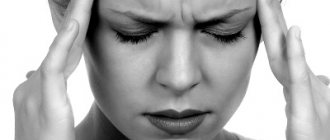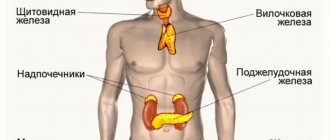Heart neurosis is one of the disorders that is characterized by pain or other discomfort in the heart area. But during examinations, no deviations from the norm in the functioning of the cardiovascular system are revealed. This is due to the psychosomatic origin of neurosis. That is, the problem is 100% psychological. And if there are no indications for heart treatment, you should consult a psychiatrist. In the international classification, the disorder has its own code F45.30 and is treated with a special technique. It is almost impossible to do this at home.
Which categories of people are more likely to experience cardioneurosis?
The key reason for the development of heart neurosis is the effect of a stressful situation on the body. The first question that a psychiatrist asks a patient with suspected cardiac neurosis concerns the presence of problems in life and recent psychological trauma experienced. Perhaps a person’s loved one has died or fallen ill, problems have arisen in school or at work, or financial difficulties have arisen.
Heart neurosis often occurs in people in adolescence against the background of hormonal changes and a negative stressful environment. In most cases, the disorder occurs in women and girls.
The problem with neurosis is that a person, when it manifests itself for a long time, considers himself truly sick. He spends a lot of time, effort and financial resources traveling to doctors and trying to establish the correct diagnosis. But the solution to the problem lies exclusively in psychological treatment using properly selected drugs and techniques.
Neurosis and hypertension
During periods of anxiety, all people experience changes in blood pressure (it can increase or decrease). Fluctuations can be caused by:
- nervous overstrain;
- frequent stressful situations;
- psychological disorders.
Regardless of whether the emotion is negative or positive, it is stress for the body. It is resolved in 2 ways:
- after a shock, the body is completely restored;
- prolonged stress becomes chronic.
Neurosis and high blood pressure are often observed in people who experience severe anxiety and are subject to anxiety attacks. Many doctors are sure that the cause of hypertension is a disorder of higher nervous activity.
Stress during neurosis, which can cause a rapid increase in blood pressure, has the following manifestations:
- weakness;
- headache;
- discomfort;
- dizziness;
- decreased ability to work;
- tinnitus;
- cardiopalmus.
Manifestation of heart neurosis
Symptoms of the disorder:
- Insomnia ; - Shortness of breath even in the absence of physical activity; - Pain in the heart area; - Increased sweating; - The emergence of panic fear of possible death due to cardiac arrest.
Apparent heart pain will change in the nature of its manifestation. At one moment there will be sensations of squeezing and squeezing, and at another moment there will be sharp colic on the left side of the body. Often people with cardiac neurosis report that they feel cardiac arrest for some time. Of course, this is a somatic sensation that has nothing to do with reality.
It is almost impossible to solve this problem without contacting specialized psychiatrists. Sooner or later, a person experiences panic attacks, stops getting enough sleep, and tries to find a solution to the problem by self-medicating or turning to healers and magicians. All this poses a danger to the mental state.
The role of anxiety disorders in hypertension and the possibility of their correction
In recent years, more and more evidence has accumulated that anxiety and some other psychopathological conditions are independent risk factors for the development of arterial hypertension (AH) and should be considered in conjunction with recognized risk factors [7]. These pathologies increase the morbidity and mortality from hypertension and coronary heart disease (CHD) [2]. Anxiety disorder should be promptly identified and treated, as it worsens the prognosis of somatic pathology [1]. The importance of anxiety disorder in cardiology is confirmed by the results of a prospective 32-year study conducted in the United States by the Centers for Disease Control and Prevention [7], which showed that with increased anxiety, the likelihood of fatal myocardial infarction increases by 1.9 times, sudden death by 4 times. ,5 times. At the same time, social epidemiological studies using objective methods conducted at the State Scientific Research Center for Preventive Medicine showed that the population experienced an increase in the level of psychological stress. It was found that about 70% of the country's population lives in conditions of chronic psychosocial stress of high and moderate levels [3].
In this regard, special attention is paid to studying the role of anxiety in the development of hypertension - one of the main risk factors for coronary artery disease. It is known that hypertension is one of the most common cardiovascular diseases, which affects, in particular, 25–35% of the Russian population. Assumptions that affective disorders, most often anxiety and depression, occupy an important place in the development and course of hypertension were expressed at the beginning of the last century. Currently, work to study the relationship between hypertension and affective disorders is carried out in two directions.
On the one hand, the results of large studies have been published demonstrating the relationship between symptoms of anxiety or depression and the development of hypertension; on the other hand, hypertension is considered as a psychosomatic disease, in the treatment of which psychotropic drugs play a very important role [4].
According to the literature, the prevalence of neurotic and somatoform disorders with anxiety symptoms in patients with hypertension can reach 51.3% [2, 5]. However, the number of studies is limited and clear recommendations for the management of such patients do not exist. It is known that comorbid anxiety-depressive disorders, like hypertension, themselves lead to a significant decrease in working capacity, while they aggravate the course of somatic illness and contribute to the formation of a hypochondriacal type of internal illness [7]. In this regard, it seems very interesting and important to determine the possibility of the influence of complex therapy with antihypertensive drugs and a “daytime” anxiolytic on the course of hypertension in patients with anxiety.
Anxiolytic therapy significantly improves the quality of life of patients with cardiovascular diseases, promotes their better compensation in the process of somatotropic therapy, and subsequently adaptation to the disease. Tranquilizers are the most adequate, effective and safe drugs for the relief of adaptation disorders in cardiac patients [2, 3]. However, patients often avoid taking benzodiazepines for fear of developing symptoms of addiction, unpleasant side effects such as lethargy, muscle weakness, and impaired attention. Elderly patients are often afraid of developing coordination problems due to the fear of falling and the appearance of instability.
Taking into account the noted problems, in recent years there has been an increasing need for drugs with a tranquilizing effect of the non-benzodiazepine series. These drugs include Tenoten.
The drug Tenoten is an ultra-low dose (USD) to the brain-specific protein S100. The mechanisms of action of anti-S100 SMD in anxiety conditions are probably associated with modification of the functional activity of the endogenous S100 protein and its ligands. As a result, its GABA-mimetic effect is realized and GABAergic neurotransmission is restored. The clinical effect is manifested by facilitating falling asleep, reducing behavioral manifestations of anxiety, improving memory, and reducing asthenia.
The purpose of the study was to evaluate the effectiveness and tolerability of combined treatment with antihypertensive drugs and the anti-anxiety drug Tenoten in patients with hypertension. The duration of the study is 4 weeks.
The study involved 60 patients with hypertension aged 61.41 ± 6.91 years (from 38 to 77 years). The patients were randomly divided into two groups (main and control) of 30 people each. There were 18 men and 12 women in the main group, and 19 men and 11 women in the comparison group.
In the main group, hypertension with a moderate course (grade II) was observed in 60% of patients, with a severe course (grade III) - in 40%; in the comparison group, there were 66.6% of patients with a moderate course, and 33.4% with a severe course. The average duration of hypertension disease was 10.61 ± 4.1 years (from 3 to 20 years).
Family history, lifestyle, risk factors and concomitant pathologies are of great importance in the course of hypertension.
Persons with symptomatic hypertension and complicated forms of hypertension were excluded from the study.
In the comparison group, patients received only antihypertensive therapy - ACE inhibitors, β-blockers, diuretics (Enap, Hypothiazide, Acridilol, Arifon). Patients of the main group received combination treatment with antihypertensive drugs in combination with Tenoten, which was prescribed according to the scheme: 6 tablets per day for the first 2 weeks, and then 1 tablet 3 times a day.
Treatment was prescribed for a month. Dynamic monitoring was carried out at the beginning of the study, after 2 and 4 weeks of therapy.
To assess mental status, we used the Personal Anxiety Scale (J. Teylor), which is designed to measure the level of anxiety (adapted by T. A. Nemchininov).
The questionnaire consists of 50 statements. The results of the study are assessed by counting the number of responses from the subject indicating anxiety; the total score is:
40–50 points is an indicator of a very high level of anxiety;
20–40 points – high level of anxiety;
15–20 points – average level of anxiety with a tendency to high;
5–15 points - average level of anxiety with a tendency to low;
0–5 points—low level of anxiety.
A study of the mental status of patients in both groups revealed anxiety symptoms of varying severity in a significant proportion of patients. The number of patients with an initial high level of anxiety was 40% in the main group and 43% in the comparison group. The number of patients with an initial average level of anxiety with a tendency to high was 60% in the main group and 56.6% in the comparison group.
Research results
By the end of the study, the high level of anxiety decreased in the main group by 39.39% and reached an average level of anxiety with a tendency to low, while in the comparison group the level of anxiety decreased by only 3.6%.
In patients of the main group who took Tenoten, a clear decrease in the level of anxiety was noted after 2 weeks and by the end of the month reached significance in comparison with the group of patients who received standard antihypertensive therapy. Relief of affective disorders was accompanied by a decrease in complaints of anxiety, feelings of helplessness, self-doubt, a sense of impending danger, and poor sleep (Table 1).
The demonstrated differences in the dynamics of anxiety indicators in the studied groups of patients confirmed the possibility of effective correction of these disorders in patients with hypertension with the drug Tenoten. However, it was extremely interesting to assess whether this therapy and the severity of concomitant anxiety disorders influence the effectiveness of antihypertensive therapy in general.
A decrease in the values of maximum systolic and diastolic pressure occurred in both study groups. By the end of the month of treatment, the decrease in blood pressure (BP) reached statistically significant significance. In the main group of patients who additionally took Tenoten, systolic blood pressure (BP) decreased by 24.28% - almost to the age norm; in the comparison group there was a decrease of 16.48%, i.e. a slight excess of normal values was noted. The decrease in diastolic pressure by the end of the 4th week in the main group (by 17.7%) and in the comparison group (by 5.9%) was also significant (Table 2).
The addition of Tenoten to complex therapy in patients with high and moderate levels of anxiety allowed us to achieve a significantly more pronounced improvement in blood pressure. During Tenoten therapy, a more rapid effect of antihypertensive drugs is observed - after 2 weeks of combined use of the drug in patients of the main group, blood pressure decreased to the target level, in contrast to the comparison group, where it remained above the target.
Conclusion
The results of our study show that all patients with hypertension exhibit anxiety symptoms of varying severity, which aggravate the course of the disease, contributing to higher increases in the level of both systolic and diastolic blood pressure. The inclusion of the modern “daytime” anxiolytic Tenoten in the complex therapy of patients with hypertension increases the effectiveness of the treatment, reduces the level of anxiety, which contributes to a more rapid onset of the hypotensive effect. Tenoten is well tolerated by patients and does not cause orthostatic hypotension or any other undesirable side effects.
Literature
- Avedisova A. S. Anxiety disorders // Yu. A. Aleksandrovsky. Mental disorders in general medical practice and their treatment. M.: GEOTAR-MED, 2004. pp. 66–73.
- Kopina O. S., Suslova S. F., Zaikin E. R. Population studies of psychosocial stress as a risk factor for cardiovascular diseases // Cardiology. 1996. No. 36 (3). pp. 53–56.
- Sudakov K.V. Emotional stress and arterial hypertension. M.: VNIIMI, 1976.
- Chazov E.I. Coronary heart disease and the possibility of increasing the effectiveness of its treatment // Clinical trials of drugs in Russia. 2001. No. 1. P. 2–4.
- Kawachi I., Sparrow D., Vokonas PS, Wess ST Symptoms of anxiety and risk of coronary heart disease. The Normative Aging Study. Circulation. 1994; 90, 5: 2225–2229.
- Lavie C., Milani R. Prevalence of anxiety in coronary patients with improvement following cardiac rehabilitation and exercise training. Am J Cardiol. 2004; 93:336–339.
- Sonas BS, Franks P., Ingram DD Are symptoms of anxiety and depression risk factor for hyprtension? Longitudinal evidence from the National Health and Nutrition Examination Survey I Epidemiologic Follow-up Study. Arch. Fam. Vtd. 1997; 6:43–9.
I. N. Nikolskaya , Doctor of Medical Sciences, Professor I. A. Guseva , Candidate of Medical Sciences, Associate Professor E. V. Bliznevskaya , Candidate of Medical Sciences, Associate Professor T. V. Tretyakova , Candidate of Medical Sciences NSMU, Medical Unit No. 25, g Novosibirsk
Treatment of pressure surges with neurasthenia
If a patient is diagnosed with hypertension due to neurosis, he needs the help of a psychotherapist. The patient is not always able to independently understand emotions and discover the causes of disturbances.
Patients with hypertension are advised to exclude stressful situations and limit mental and physical activity. Medications include psychostimulants, antidepressants, tranquilizers, adaptogens, and anti-anxiety drugs.
The doctor selects the drug, dose and determines the duration of treatment, taking into account the patient’s age, existing diseases and complications.
Patients with symptomatic hypertension are prescribed ACE inhibitors, beta blockers, and diuretics. For patients with hypertension, a diet high in carbohydrates and proteins is recommended. Salted, fried, fatty, smoked, canned, and sour foods are excluded from the diet.
During the recovery period, physiotherapeutic treatment is used: electrophoresis, darsonval, baths with essential oils. The disease with complex treatment lasts from 2 to 3 months.
If a patient has low blood pressure, neurosis in this case is complemented by chronic fatigue. Typical symptoms:
- fast fatiguability;
- deterioration of attention and memory;
- impaired concentration;
- weakness.
When blood pressure drops, hypotension occurs. Some patients experience hypotension: as soon as a person is in an upright position, the pressure drops sharply.








